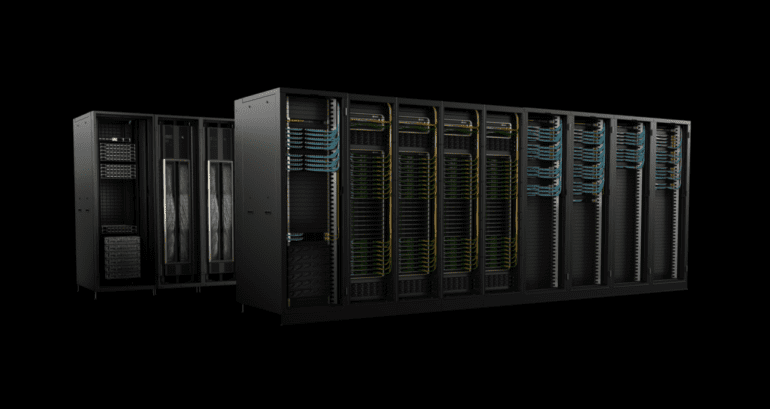- Nvidia introduces Blackwell, a revolutionary AI processor design at GTC conference.
- Blackwell boasts unparalleled speed in handling AI models and is poised to power new generation computers.
- Named after David Blackwell, the chips comprise 208 billion transistors and target major data center operators.
- Successor to Hopper, Blackwell signifies Nvidia’s continued dominance in AI accelerator chip development.
- Despite a slight stock dip post-announcement, Nvidia remains committed to driving the AI industrial revolution.
- Blackwell integrates advanced manufacturing techniques and enhanced connectivity for accelerated AI processing.
- Nvidia aims to broaden technology accessibility, empowering diverse sectors with AI-driven innovation.
- Partnerships with industry leaders like Siemens AG and BYD underscore Nvidia’s impact across various domains.
- Project Groot promises to revolutionize humanoid robotics while collaborating with Johnson & Johnson to advance surgical analytics.
Main AI News:
In a move set to fortify Nvidia’s stronghold in artificial intelligence (AI) computing, CEO Jensen Huang has introduced groundbreaking chips, solidifying the company’s position as the world’s third most valuable enterprise. Unveiled at the GTC conference in San Jose, California, the Blackwell processor design promises unprecedented speed in handling AI models, revolutionizing both the training and inference processes.
Named after the pioneering Black scholar David Blackwell, the Blackwell chips, comprising a staggering 208 billion transistors, are poised to underpin a new generation of computers and products. Scheduled for release later this year, these chips will power the infrastructures of industry giants like Amazon, Microsoft, Google, and Oracle, marking a significant leap forward in AI computing capabilities.
The predecessor to Blackwell, Hopper, witnessed unparalleled success, propelling Nvidia to the forefront of AI accelerator chip development. The flagship H100 product from the Hopper lineup has emerged as a coveted asset, commanding premium prices in the tech market. This success has propelled Nvidia’s market capitalization to unprecedented heights, making it the first chipmaker to breach the $2 trillion valuation mark, trailing only behind Microsoft and Apple.
Despite the highly anticipated announcement, Nvidia’s stock saw a modest dip in extended trading, indicating the challenge of meeting investors’ high expectations. However, Huang remains resolute, emphasizing AI’s pivotal role in driving a fundamental shift in the global economy, with Blackwell chips poised to fuel this new industrial revolution.
Positioning itself at the forefront of technological innovation, Nvidia’s Blackwell design represents a significant leap forward, leveraging advanced manufacturing techniques to integrate an unprecedented number of transistors. This innovative approach, coupled with enhanced connectivity capabilities and accelerated AI data processing, sets the stage for a new era of computing prowess.
Moreover, Blackwell’s integration with Nvidia’s central processing unit, Grace, further enhances its capabilities, offering users a versatile platform for AI-driven applications. With an eye towards inclusivity, Nvidia aims to broaden the accessibility of its technology, empowering corporations and governments to harness the transformative potential of AI.
As Huang aptly concludes, Nvidia’s relentless pursuit of innovation extends far beyond hardware, encompassing a comprehensive ecosystem of software and services. From revolutionizing industrial design with Siemens AG to powering next-generation electric vehicles with BYD, Nvidia’s impact resonates across diverse sectors, shaping the future of AI-driven innovation.
With Project Groot poised to revolutionize humanoid robotics and partnerships with industry leaders like Johnson & Johnson paving the way for advancements in surgical analytics, Nvidia continues to push the boundaries of what’s possible in AI technology. As Huang envisions a future where robotics pervade every aspect of our lives, Nvidia stands at the forefront of this transformative journey, poised to redefine the contours of human-machine interaction.
Conclusion:
Nvidia’s unveiling of Blackwell marks a significant milestone in AI computing, underscoring the company’s continued leadership in the industry. With Blackwell’s advanced capabilities and strategic partnerships, Nvidia is poised to shape the future of AI-driven innovation across diverse sectors. This development reaffirms Nvidia’s position as a key player in the evolving landscape of AI technology, with profound implications for the market’s trajectory.

